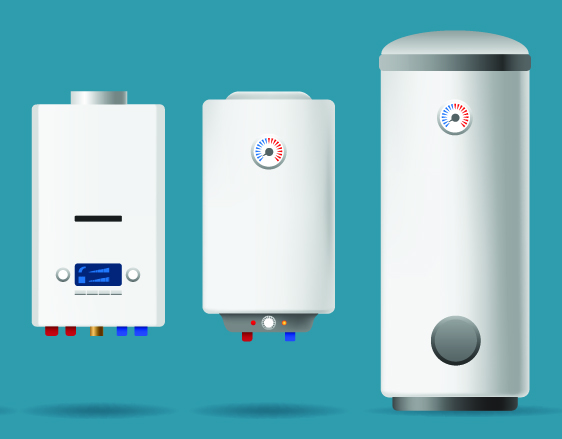When it comes to choosing a water heater for your home, there are two main options – traditional tank-style water heaters and tankless systems. While both of these methods provide hot water on demand, they each have their own unique features and benefits that make them ideal for different types of households. In this blog post we’ll explore the differences between these two systems so you can determine which one is right for your needs. We’ll discuss everything from pros and cons to installation tips and maintenance schedules, so you can determine which type best suits your lifestyle. Whether you’re looking for an energy efficient model, a long-lasting system or just want something simple that won’t break the bank — there is sure to be an option here that fits your needs!

Overview of Traditional Water Heaters
Traditional water heaters have been a popular choice for providing hot water to households for decades. These heaters typically feature a large tank that stores and heats water, which is then delivered through a network of pipes to sinks, showers, and other fixtures in your home. These tanks usually hold from 20 to 80 gallons of water. One benefit of traditional water heaters is that they can provide a continuous supply of hot water, as long as the tank is kept full. While they may not be the most energy-efficient option, they are a reliable and cost-effective choice for many homeowners. It’s important to properly maintain your traditional water heater to help extend its lifespan, and consider upgrading to a newer, more efficient model if your current one is outdated.
Advantages and Disadvantages of Traditional Water Heaters
One of the biggest advantages of traditional water heaters is their affordability. They are usually less expensive than their tankless counterparts and can be installed relatively easily. They also have a longer lifespan compared to tankless heaters with proper maintenance. However, they do have some disadvantages, including energy inefficiency. Traditional water heaters constantly heat a large amount of water, which means energy is wasted when the water isn’t being used. They also take up valuable storage space and can be prone to leaks if not properly maintained or serviced by a professional plumber in Conway. Overall, while traditional water heaters have their pros and cons, it’s important to weigh all factors before making a decision on which type of water heater is right for your home.
Advantages and Disadvantages of Tankless Water Heaters
For those in the market for a new water heater, tankless options have become increasingly popular in recent years. While they offer some undeniable advantages, there are also a few disadvantages to consider. On the plus side, tankless water heaters are more energy efficient and can save homeowners money on utility bills. They also take up less space and provide endless hot water, as they heat water as needed rather than storing a set amount. However, they can be more expensive up front and may require more maintenance. Additionally, they may not be the best option for large households with high hot water demands. Ultimately, the decision depends on each individual’s unique needs and budget.
Cost Comparison Between Traditional and Tankless Water Heaters
When it comes to choosing a water heater for your home, one of the most important factors to consider is cost. Traditional tank water heaters and tankless water heaters have different upfront costs and operating costs, which can make a big difference in your overall expenses. Traditional water heaters are usually cheaper to purchase and install, but they use more energy to keep water heated in a large tank, leading to higher monthly bills. Tankless water heaters, on the other hand, are more expensive to install, but they heat water on demand, so they use less energy and can save you money in the long run. It’s important to weigh the upfront costs and ongoing expenses before deciding between a traditional or tankless water heater.
In conclusion, both traditional and tankless water heaters offer substantial benefits while having their own limitations. It ultimately comes down to personal preference and price point when deciding which type of water heater is right for your needs. Traditional water heaters are generally less expensive upfront, but they require more energy to utilize in the long run whereas tankless water heaters tend to be more expensive upfront, but they offer a range of features that offset the initial cost such as extended longevity and much higher energy efficiency. Consider all your options carefully before making a decision and investing in a new water heater.

